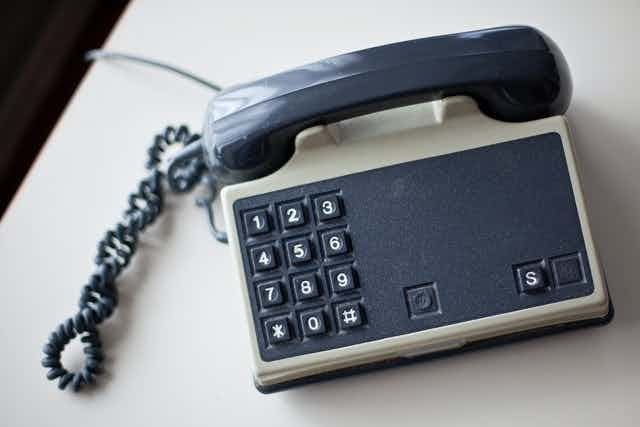Recent data has shown that vast numbers of people across the UK have now stopped using their landline phone altogether. The reliability and affordability of mobile phones have played a big part in this, according to experts. A study conducted by price comparison site Uswitch has shown that 40% of people no longer use a landline at all.
With even seniors now turning to modern technology such as WhatsApp for their communication needs, the use of landlines has rapidly declined. In the over-65s age group, 95% of people still have a landline. However, far fewer older people are now using them because they have become used to mobile phone technology.
In younger age groups, mobile phones have been the primary form of communication for many years, with many born into the digital era. The survey results showed that nearly 50% of people aged 25 and under did not even have a landline.
Landline use continued to decline in lockdown
Officials said that despite the various restrictions imposed over the past year due to Covid, landline use has continued to decline. This is not just due to people becoming more used to mobile technology, but also because the cost of using mobiles has fallen significantly.
Nick Baker from Uswitch said this was partly due to people getting used to digital communications such as video calling while working from home. In addition, the older generation appears to have become far more confident and far less fearful when it comes to using modern technology.
Among those polled about their landline use during the lockdown, 15% said they were using it more than before. In contrast, 27% said they were using it less.
Mr Baker said, "We've been locked inside for a year, but landline use has actually fallen. Work-from-home and study-from-home has forced people to get used to video calling. It's taken away the fear for a lot of people, especially the older generation."
The data also showed that around 80% of homes now have a landline, compared to 95% back in 2000. However, officials have pointed out that in many homes, the only reason there is a landline installed is that it comes as part of a broadband supplier package. Many people never use the landline even though it is installed in the home.
Also, the data revealed that those using the landlines installed in their homes were talking on them for an average of just five minutes a day. Some older people simply have a mobile device without any SIM card or contract, and they use it at home for voice and video calls on WhatsApp via the home’s Wi-Fi connection. This has dramatically reduced their need to use the landline.
Landlines are a lifeline for nuisance callers
Another thing that has put many people off using landlines these days is they have become a lifeline for nuisance callers over the years. Many people receive a substantial volume of nuisance and unsolicited calls on their landlines, which can become frustrating and even distressing for some.
Many scammers also target vulnerable groups such as the elderly via landline phone scams, often pretending to be from a bona fide company and getting them to give sensitive and financial information on the phone. As a result, many have fallen victim to scams after providing such details to fraudsters who have contacted them via the landline.
The figures showed that close to 25% of people now avoid answering the landline because they believe it is likely to be a cold-caller or scammer.








